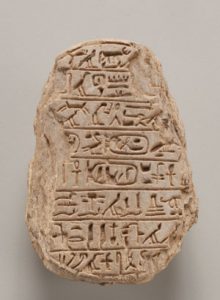The stories of Greek mythology are entirely fascinating and thought provoking. Nevertheless, these myths have become so popularized because of the teachings found within the strengths and battles of each Greek figure. The chronicled lives of Greek gods and goddesses is a compilation of oral stories that have been passed from generation to generation.1 Although these didactic stories are all intriguing, one compelling one is the upbringing of Zeus, God of the Sky and the King of the Gods. Zeus’s admiration and notorious reputation in Olympus was not an easily achieved title. He endured various struggles throughout young adulthood within himself, his family, and those who sought for control.2 Despite great obstacles, Zeus fulfilled a destiny that would lead him to reign over Olympus.

Son of Cronus and Rhea, Zeus was the last-born child of six siblings. His father, Cronus, managed to seize domination of the skies from his own father, Ouranos, and was cautious that his actions would repeat itself with his own children. To prevent a detestable takeover before his death, Cronus consumed his children Hestia, Demeter, Hera, Hades, and Poseidon. Luckily, Rhea, Cronus’s wife, spared Zeus by giving her partner a stone wrapped in a blanket.3 Assisted by Titans, Uranus and Gaea, Rhea managed to send her son to Mount Dikte, on a Greek island in Crete, so that he would be far away from his father’s tyrannical greed. Zeus was nurtured by Nymphs, or divine spirits, and was fed by Amaltheia, a goat nurse, that acquired milk for him through one of her cracked horns.4 His unknowing escape resulted in Zeus’s ignorance regarding his powers and potential ability to be the God of all Gods.

As his coming of age grew closer, Zeus’s powers became increasingly dominant, and could not go unnoticed. Since Zeus was unaware of his true beginnings, and was raised by Amaltheia, he held great adoration toward her. On one occasion, Amaltheia got trapped on a tree branch, and in her attempt to become untangled, her horn broke off. She proceeded to fill the horn with fruits and handed it over to Zeus as a keepsake of protection. To show her his appreciation, he transformed Amaltheia’s horn into a cornucopia. Symbolically, this is the “horn of plenty,” and has all the food and drink that the owner desires.5 Having the cornucopia in his possession, Zeus’s powers increased, and fruits were never scarce, becoming richer than they were before. Gaea noticed Zeus’s extraordinary powers, and she entrusted to him his fate to overthrow his father for his total rule.

Upon learning of his origins, Zeus returned to gain control of Olympus from Cronus. Initially, Zeus got his father to eat a special herb, which caused him to eject Zeus’s siblings from his stomach.6 Ungovernable Titans wanted to battle for jurisdiction over all Olympian gods, and a decade-long battle emerged, which came to be known as Titanomachy. The Titans were siblings of Cronus, and Zeus gained assistance from a cyclops. The cyclops provided Zeus with his signature lightning bolt, and Zeus’s brothers, Poseidon and Hades, managed to take supreme authority from Cronus.7 Much of Zeus’s struggles came to him when he realized that he possessed his supernatural powers. Fortunately, he instinctively chose to do what was morally right, while being able to implement his powers on others.
Ultimately, Zeus and his brothers chose to rule over distinct parts of the cosmos. Zeus secured the heavens, Poseidon ruled the seas, and Hades became lord of the underworld.8 The limitations that Cronus once wished to deprive Zeus of were no longer an obstacle. According to Homer, Zeus reigned at the top of Mount Olympus, where he observed the affairs of men.9 Zeus also married his sister, Hera, and embodied the divine dimension of the code of ethics that ancient Greeks aspired to live by. Artistically, Zeus is characterized as a bearded and honorable man. When the topic of Greek gods and mythology arises, it is typical for one to envision Zeus and his lightning bolt.
- Salem Press Encyclopedia, 2017, s.v. “Zeus(Deity),” by Trudy Mercadal. ↵
- Elaine Margery, Greek Mythology: Ancient Myths of the Gods, Goddesses, and Heroes-Zeus, Hercules and the Olympians (n.p., 2016), 30. ↵
- Russel Robert, Zeus (Hockessin, DE: Mitchell Lane Publishers, Inc., 2008), 10. ↵
- Robin Waterfield, The Greek Myths (London: Quercus, 2013), 6. ↵
- Karoly Kerenyi, The God’s of the Greeks (London: Thames and Hudson, 2006), 3. ↵
- Elaine Margery, Greek Mythology: Ancient Myths of the Gods, Goddesses, and Heroes-Zeus, Hercules and the Olympians (n.p., 2016), 23. ↵
- Russel Robert, Zeus (Hockessin, DE: Mitchell Lane Publishers, Inc., 2008), 33. ↵
- Salem Press Encyclopedia, 2017, s.v. “Zeus(Deity),” by Trudy Mercadal. ↵
- Russel Robert, Zeus (Hockessin, DE: Mitchell Lane Publishers, Inc., 2008), 15. ↵


85 comments
Mckenzie Gritton
Its really interesting to read about Zeus’ background. Basically everyone has heard about the Greek Gods but not many people actually know much about them. It was nice how you showed the parallel between Cronus and Zeus both needing to defeat their own fathers. I also didnt know Hera was his sister… but I guess they were all connected in one way or another.
Alyssa Vasquez
I used to learn about Greek mythology all the time when I was in private school. Read all the books about Greek mythology, watch movies and do activities. I’ve read the story of Zeus many times in schooling it’s still so interesting reading about Zeus again. Seeing Zeus accomplish what he did and in a good way is so inspiring.
Madeline Emke
Growing up, my grandfather and I often discussed Greek mythology and the influence it held over Greek life. Because mythology originated through oral tradition, there are many variations for numerous stories. However, the origin story of Zeus is one that has remained consistent throughout the retellings of mythology. This article provided a brief and accurate description of Zeus’ origin story.
Meadow Arriaga
Greek mythology is so interesting because it explains some mysteries of this world, and what most humans might question at one point. Zeus not knowing his past, was still able to find the control to his supernatural characteristics. Zeus proved his worth by remembering morals when it came to use of powers. Without the influence of his father’s greed, I believe Zeus was able to achieve his potential and use it for good.
Micheala Whitfield
Mythology is what began the aspect of worshiping a god. The Romans and Greeks believed in these gods, as well as, created other smaller gods for different types of worship. I enjoyed the article, yet I was hoping for more elaboration on Zeus. Maybe some events during Zeus and his growth, as in if his mother tried to contact, or just more information about Zeus himself. I enjoyed the overview of the gods and Zeus path to his reign, I was just hoping for a bit more on just Zeus and his life.
Cassandra Sanchez
I remember reading and learning about Greek mythology years ago and it has always been very interesting to read about. I never knew the details behind Zeus’ childhood and about Amaltheia who helped nurture him. There has always been a complicated concept behind the background of Greek gods but I also really enjoy how in some ways everything ties in together to create a very beautiful story.
Julia Edwin- Jeyakumar
I have always loved learning about greek mythology, ever since my Latin class in high school. Learning about hades and Poseidon was always my favorite cause they bent laws when they wanted to. Zeus was awesome too, but he was always the ultimate head of all the Gods. It is like any other Disney story too, the kid doesn’t realize his potential until a person from his families past life comes and reveals to him his destiny. This is really an amazing article and interesting read!
Todd Brauckmiller Jr.
A very fun story to tell, reminds me back when I was in high school learning about Greek Mythology for the first time. Out of the whole Zeus story I really enjoy the way he was able to trick his father into eating the herb and causing Cronus to spit out his other siblings. The last thing Cronus would expect is his one of his sons coming back for the rest of his siblings. Out of all of the mythologies I feel that we can learn very important lesson from each of them. I mean these myths have been around for a very very long time, if a story still is told for that long then it must carry an important message to it.
Cynthia Perez
Zeus is an interesting Greek God for sure, almost everyone has heard about him. The iconic Zeus and his lighting bolt, portrayed with his tunic. Diving deeper into his story however was enjoyable considering I personally wasn’t aware of who he really was. Cronus devouring his own children out of spite believing they would take over and overthrow him, okay yeah Zeus may have actually proved the prophecy’s truth, but it had also created this intense symbolism shown in their relationship compared to other father-son dynamics.
Amanda Quiroz
There is something about Greek Mythology that has always fascinated me. I remember learning about the story of how Cronus swallowed the stone instead of Zeus. I don’t recall learning about his upbringing other than how he was saved from his father’s stomach. It was interesting to read about Amaltheia, the goat nurse, and his adoration and gratitude towards her.